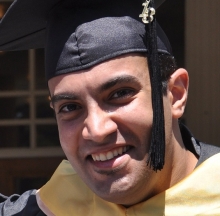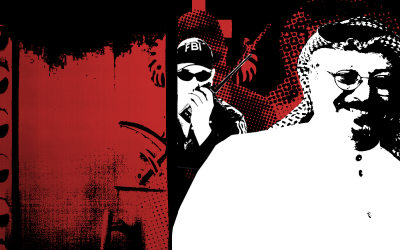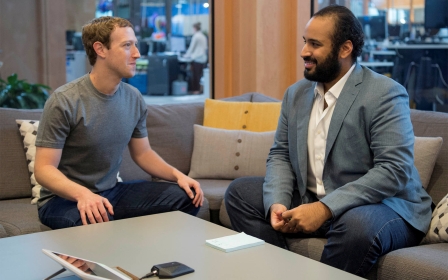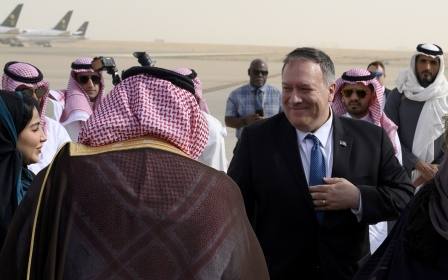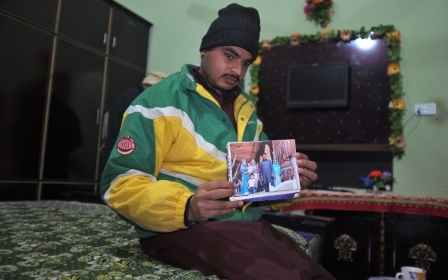US family calls for freedom after disappeared Saudi aid worker resurfaces
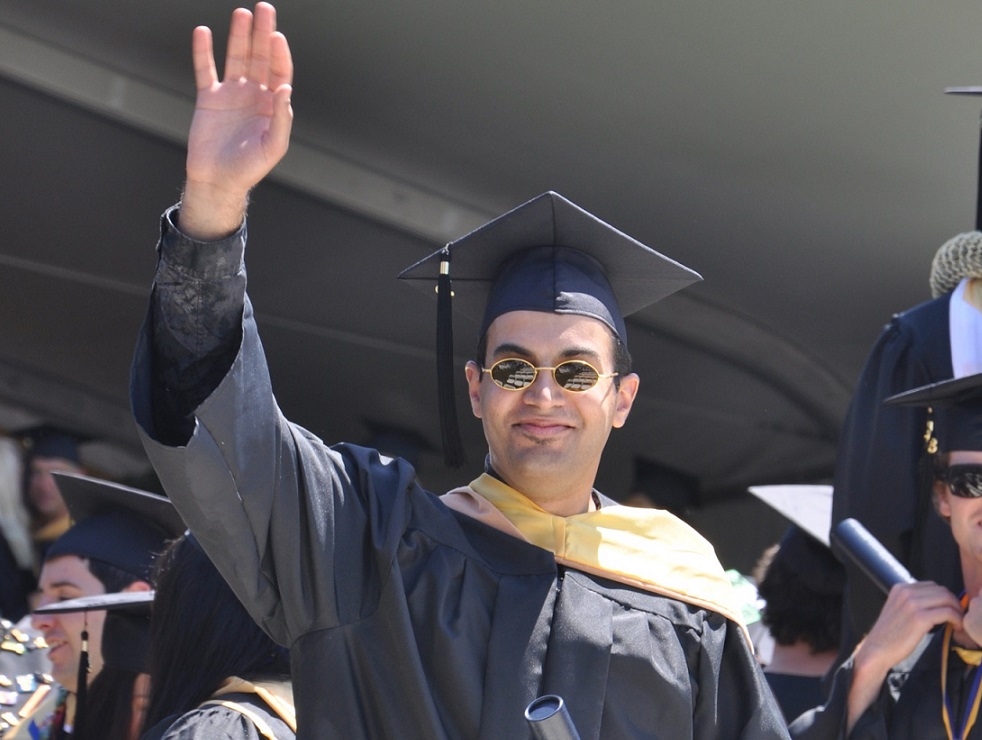
Nearly two years after his family last heard from him, a Saudi humanitarian aid worker detained without charge resurfaced last week.
Now relatives of Adulrahman al-Sadhan living in the United States hope that US Secretary of State Mike Pompeo, currently on a visit to the kingdom, will press for his release.
Sadhan, 36, disappeared in March 2018 after he was arrested from the Red Crescent offices in Riyadh where he worked, kicking off the broad mystery that has surrounded his case.
'Some people sort of are feeling sorry that, for a one minute call, we would feel this happy'
- Areej al-Sadhan, sister of Abdulrahman
Why he had been picked up in the first place, where he was being held and whether he was even still alive were questions hanging over the family for months without answer.
Families of other detainees reportedly held with Sadhan warned that he had been severely tortured in prison, his family have said.
New MEE newsletter: Jerusalem Dispatch
Sign up to get the latest insights and analysis on Israel-Palestine, alongside Turkey Unpacked and other MEE newsletters
So when Sadhan rang a family member from al-Hair Prison last week, his sister Areej al-Sadhan says just hearing his voice, even briefly, meant the world to them.
“It was amazing,” she told Middle East Eye this week, adding that they spoke for just a minute.
“Some people sort of are feeling sorry that, for a one minute call, we would feel this happy,” she added.
“For us, because of his disappearance and all of the struggles we went through, it’s just like a gift from god. It’s huge. It’s such a huge relief.”
No charges, no trial, no lawyer
Even now, it is still unclear why Sadhan, who graduated with a degree in business at Notre Dame de Namur University in California and had always dreamed of working for the Red Crescent, is imprisoned.
MEE asked Saudi officials to comment, but had not heard back by the time of publication.
During his two years in detention, Sadhan has not been granted access to a lawyer and, as far as family and human rights advocates know, has still not been formally charged.
“It appears that he’s been held arbitrarily, without going before a judge or being charged with a crime as far as we can tell,” said Adam Coogle, a Middle East researcher at Human Rights Watch who has been following Sadhan's case.
“It’s another sad example of Saudi Arabia’s unjust legal system where people can spend months and years without any way to address their detention.”
In the three years Crown Prince Mohammed bin Salman has been Saudi Arabia's de facto leader, the kingdom has seen several crackdowns in which religious leaders, academics, women's rights advocates, business executives, former officials and rival royals were detained.
US lawmakers, from both the Republican and Democratic parties, have criticised US President Donald Trump's administration for not pressing Riyadh harder on its human rights record.
Days after the CIA concluded in November 2018 that the crown prince ordered the killing of Saudi journalist Jamal Khashoggi in Turkey, Trump cast doubts over the findings of his intelligence community. "Maybe he did and maybe he didn't!" the president said in a statement.
Before flying to Riyadh on Wednesday, Pompeo told reporters that he planned to raise concerns about human rights in the kingdom during his visit and, when asked specifically, said he would discuss the case of Walid Fataihi.
The US citizen and doctor was detained by Saudi authorities in 2017 and released last August, but has been prohibited along with his family from leaving the kingdom.
"I’m sure I’ll bring up that issue and a wide range of human rights issues as well," Pompeo said.
"Each of the visits I’ve had to the kingdom during my time both as the CIA director and as secretary of state, we’ve raised these important issues, the issues that matter a lot to the American people."
MEE asked the US State Department whether Sadhan’s case will also be raised during Pompeo's discussions and was referred to Pompeo's general comments.
His family, meanwhile, hope that last week’s call was just the first break of good news.
“We’re hoping that we are going to get another call, that we are going to get more details,” said Areej. “Did they tell him when they are going to release him? Are they ever going to release him?”
Middle East Eye delivers independent and unrivalled coverage and analysis of the Middle East, North Africa and beyond. To learn more about republishing this content and the associated fees, please fill out this form. More about MEE can be found here.


